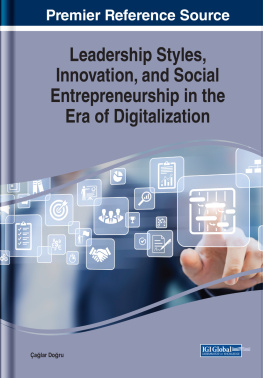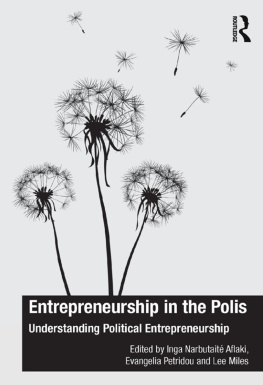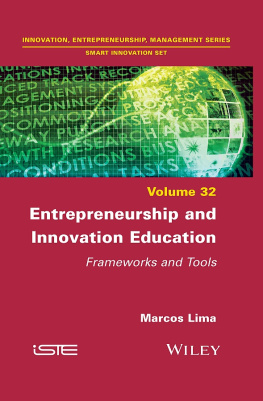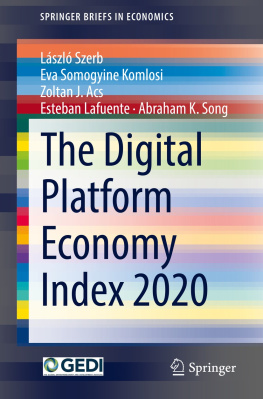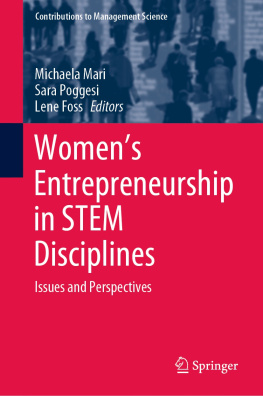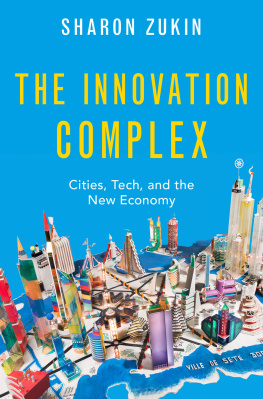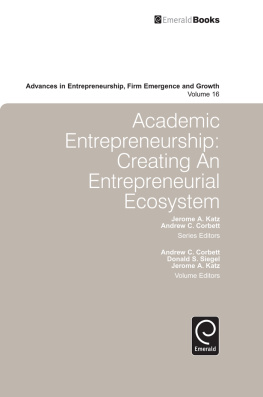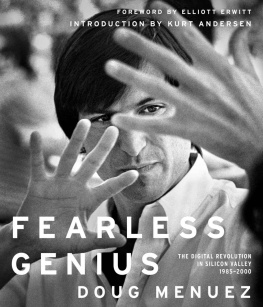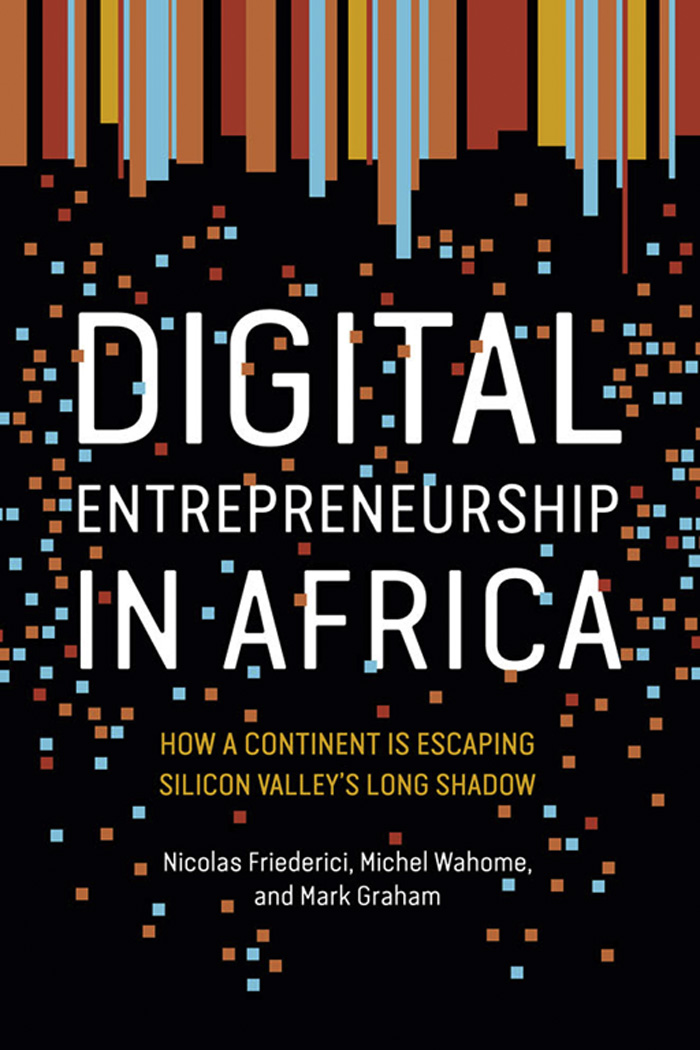
Digital Entrepreneurship in Africa
Digital Entrepreneurship in Africa
How a Continent Is Escaping Silicon Valleys Long Shadow
Nicolas Friederici, Michel Wahome, and Mark Graham
The MIT Press
Cambridge, Massachusetts
London, England
2020 Massachusetts Institute of Technology
This work is subject to a Creative Commons CC-BY-NC-ND license.

Subject to such license, all rights are reserved.
The open access edition of this book was made possible by generous funding from Knowledge Unlatched and Arcadiaa charitable fund of Lisbet Rausing and Peter Baldwin.


This book was set in ITC Stone Serif Std and ITC Stone Sans Std by Toppan Best-set Premedia Limited.
Library of Congress Cataloging-in-Publication Data
Names: Friederici, Nicolas, 1985- author. | Wahome, Michel, author. | Graham, Mark, 1980- author.
Title: Digital entrepreneurship in Africa : how a continent is escaping Silicon Valleys long shadow / Nicolas Friederici, Michel Wahome, and Mark Graham.
Description: Cambridge : The MIT Press, 2020. | Includes bibliographical references and index.
Identifiers: LCCN 2019034676 | ISBN 9780262538183 (paperback)
Subjects: LCSH: Electronic commerce--Africa, Sub-Saharan. | Entrepreneurship-- Information technology--Africa, Sub-Saharan. | Information technology-- Economic aspects--Africa, Sub-Saharan.
Classification: LCC HF5548.325.A357 F75 2020 | DDC 381.14206567--dc23 LC record available at https://lccn.loc.gov/2019034676
10 9 8 7 6 5 4 3 2 1
d_r0
Contents
Acknowledgments
This book emerged from a five-year European Research Council (ERC) funded project called Geonet. The project (ERC-2013-StG335716-GeoNet) gave us the opportunity to fund both the salaries of the authors (Nicolas and Michel as full-time Postdoctoral Researchers on the project, and Mark as the Principal Investigator) and the extensive fieldwork that was required to undertake a research project of this size. Needless to say that our research in this areaand by extension, this bookwould not have existed without the support of the ERC.
The Geonet project incorporated three core research areas, of which the work in the book represents one. Each area of the project has been shaped by the innovative research and hard work of our colleagues in the rest of the team. Therefore, we wish to thank our Geonet collaborators: Mohammed Amir Anwar, Fabian Braesemann, Chris Foster, Sanna Ojanper, Stefano De Sabbata, and Ralph Straumann. We are especially thankful to Sanna and Fabian for providing data-scientific inputs to this book.
This book is an exercise in empirical grounding and, as such, it could not be written without the participation of the people on the ground: Africas digital entrepreneurs and their supporters. We conducted 202 in-depth research interviews including with 143 digital entrepreneurs, plus countless informal conversations with people we met during field visits. Many of these individuals are pioneers and leaders in their local communities, making them sought-after candidates for studies and media pieces. We found it fascinating and inspiring to be invited into their professional lives, and we are grateful for their hospitality and the time they dedicated to participate in our research. We especially want to thank the founders of AgroCenta for allowing us to profile their companies as a case study.
Our fieldwork spanned eleven African cities. To make such ambitious data collection effective, we relied on help from friends and colleagues who live in those cities or have experience working in them. They introduced us to participants, showed us around the most important spots of entrepreneurial ecosystems, and sometimes even helped us with travel essentials like visas and accommodation. We want to extend our thanks to Claude Migisha for Rwanda; Tessy Onaji, Abi Jagun, Tunde Akinnuwa, David Souter, and Tim Kelly for Nigeria; Gerawork Aynekulu, Enku Wendwosen, Seyram Avle, and Markos Lemma for Ethiopia; Bitange Ndemo, Tim Weiss, and Moses Kemibaro for Nairobi; Maxine Moffet and Arielle Kitio for Yaound; Parfait Ouattara for Abidjan; and Linda Swart for Johannesburg. We also thank all representatives of local organizations who reviewed and approved the research ethics of our project: Olufunbi Falayi, Akintunde Oyebode, Kayode Adegbola in Nigeria; Dr. Ernest Mwebaze and Dr. Grace Kamulegeya in Uganda; Adama Camara and Baidy Sy in Senegal; Thomas Herve Mboa Nkoudou and Horace Fonkwe in Cameroon; Jean-Jacques Bogui Maomra and Obin Guiako in Cte dIvoire; and Francisco Mabila and Ruben Manhica in Mozambique.
We presented the findings discussed in this book in talks and workshops with Humboldt University in June 2017; with the DIODE group in Oxford in October 2017; with the GIZ Make IT Alliance in Berlin in May 2018; and with audiences at Freie University Berlin, Humboldt Institute for Internet and Society, the World Bank, Michigan State University, Weizenbaum Institute, and University of Bayreuth audiences throughout 2019. We thank all participants for their feedback and encouragement. We also want to acknowledge the Higher Education Impact Fund at Oxford which was the source funding for the Geonet conference in South Africa, where a large majority of presenters and panelists were the digital workers and digital entrepreneurs who had informed the research. This was an invaluable opportunity to share and validate analyses, and to engage in constructive debate and discussion with participants.
Emily Taber and Laura Keeler of the MIT Press have been a wonderful source of support, seeing the value of our book from day one and guiding us through the editorial process. We very much appreciated Kathy Carusos diligent and constructive editing, which made for a seamless journey from manuscript to final product. We also thank Melinda Rankin for copyediting our text and greatly improving its legibility. Several anonymous reviewers of sample chapters and the first full draft provided valuable guidance on how we could more effectively communicate our findings. We want to especially thank one reviewer who clearly dedicated a great deal of their time to a comprehensive review, making valid suggestions on how to restructure the manuscript. Their ideas contributed to the ultimate message of chapter 7 in particular.
The project found a supportive home at the Oxford Internet Institute, and we wish to thank Duncan Passey, Tim Davies, Emily Shipway, Adham Tamer, Arthur Bullard, and Clarence Singleton for their extensive administrative support over the life of the project. We thank David Sutcliffe for providing editorial support on the first full draft of the book. Anouchka Stephan and Elly Otieno transcribed a vast amount of audio-recorded interview material, and we thank them for their diligence and patience throughout this process.
The Humboldt Institute for Internet and Society supported Nicolas in disseminating the books findings through workshops, presentations, and media outreach. We want to thank Florian Ldtke at HIIG for supporting this effort. Laleah Fernandez and Dylan Curtis at Michigan State University and Wouter Bernhardt in Berlin produced audiovisual material to convey our insights to a wider audience. The Oxford Internet Institute also funded a dissemination trip in 2019.
Next page

